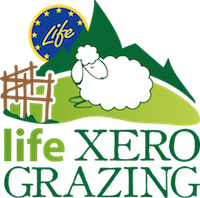 LIFE+is a financial instrument which supports environmental policy of the European Community. Adopted for the first time in 1992, LIFE + is divided into three main areas of action: Nature and Biodiversity, Environmental policies and government of territory, Communication and Information.
LIFE+is a financial instrument which supports environmental policy of the European Community. Adopted for the first time in 1992, LIFE + is divided into three main areas of action: Nature and Biodiversity, Environmental policies and government of territory, Communication and Information.
The program funds pilot projects and innovative actions, aimed at integrating issues of environmental protection with land planning and sustainable development. Grants are awarded to the best projects, particularly to those with highest practical content.
Within the framework of LIFE+ Nature, conservation actions are those "necessary to maintain or restore the natural habitats and the populations of species of wild fauna and flora at a favorable status." In practice, LIFE+ Nature contributes to the implementation of EC Directives "Birds" (79/409/EEC) and "Habitats" (92/43/EEC) and in particular, to the establishment of the European network of protected areas. NATURA 2000 – is designated to the management and preservation 'in situ' (in their natural environment) of species of fauna, flora and their habitats most valuable within the European Union.
Further information on LIFE+ can be gained by visiting the following websites: http://ec.europa.eu/environment/life/index.htmhttp://94.86.40.85/home_it/menu.html?mp=/menu/menu_attivita/&m=LIFE_.html&lang=it
Natura 2000 is the main instrument of EU policy used for conservation of biodiversity. It is an ecological network, spread throughout the territory of the Union, as established under Directive 92/43/EEC "Habitat" to ensure the long-term maintenance of natural habitats and species of flora and fauna threatened with extinction or existing at rare levels in the Community.
The areas included in the Natura 2000 network are not strictly protected reserves where human activities are excluded; the Habitats Directive aims to ensure the protection of nature whilst taking into account "economic, social and cultural requirements as well as regional and local characteristics" (Art . 2). Individuals and(or) private citizens can be owners of Natura 2000 sites, ensuring sustainable management both in terms of ecological and economical needs.
For further information on the italian Natura 2000 network refer to: http://www.minambiente.it/pagina/rete-natura-2000
















